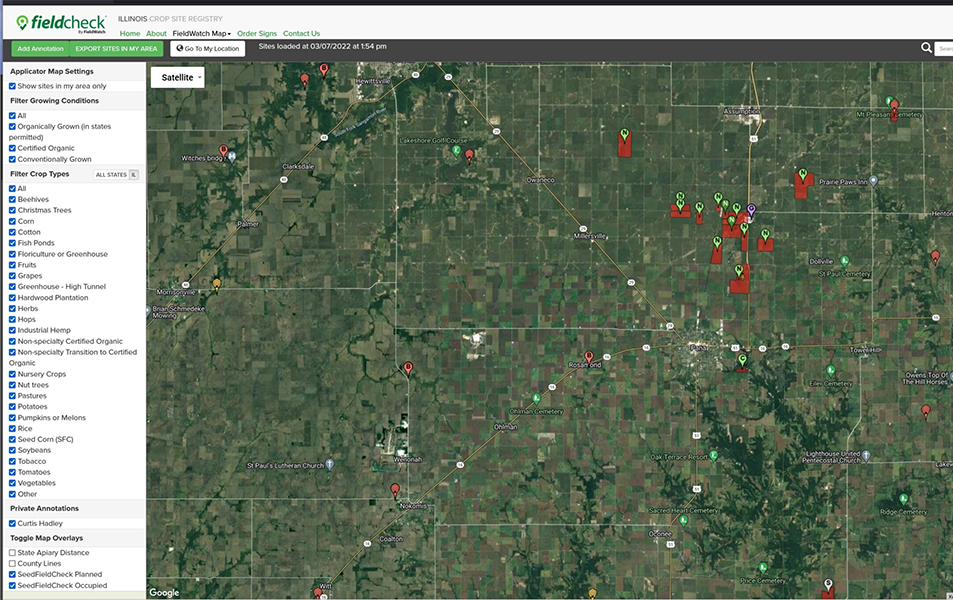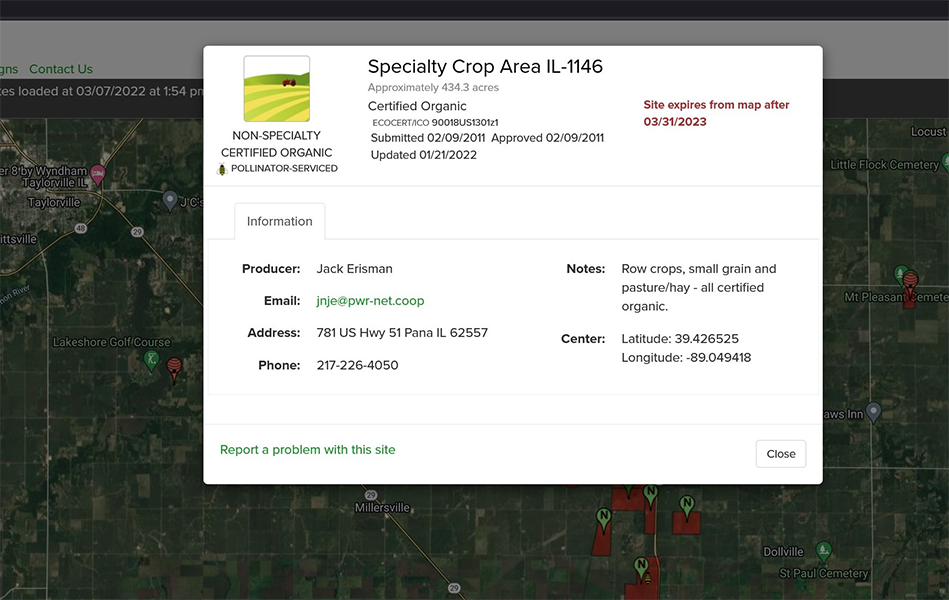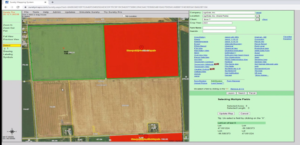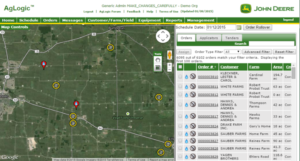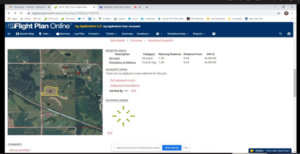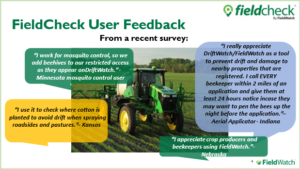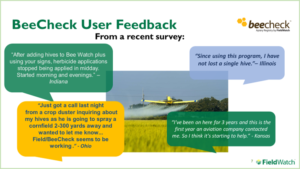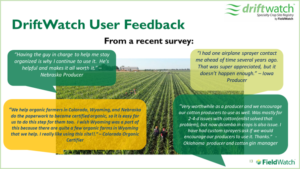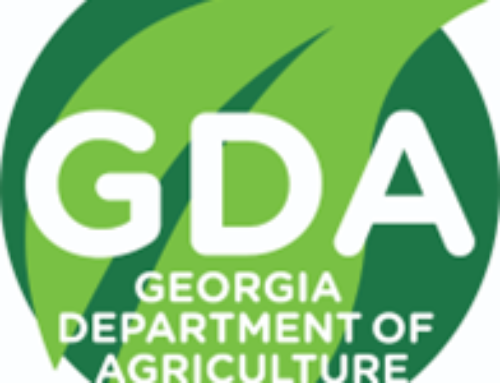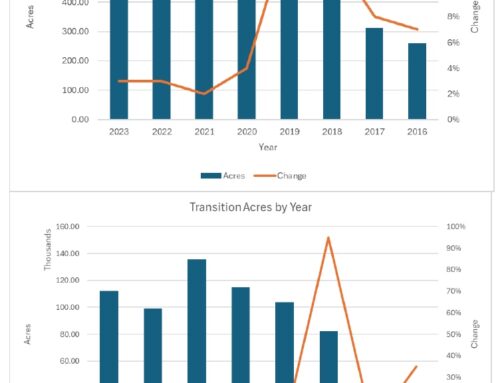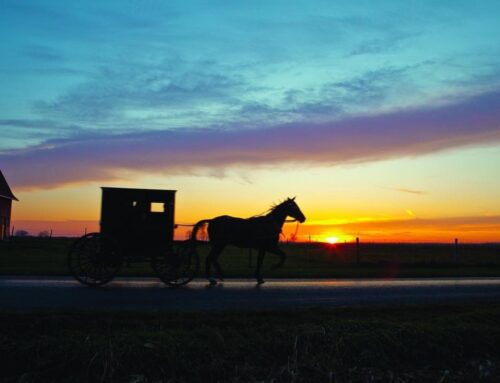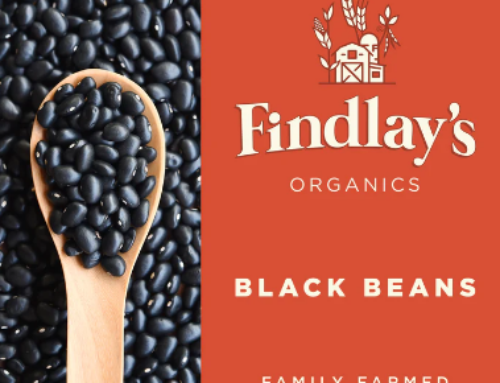We are often asked how new states / provinces / areas join FieldWatch and bring the registries to their areas. With 24 US states, Washington DC and 1 Canadian Province in Saskatchewan in the registry network we could tell you that they all joined the same – that would be far from the truth! The fact is that there are many ways that states / provinces / areas have joined and brought the registries to their respective areas, but there is one common thread – the need of the crop producers, beekeepers and pesticide applicators to always DO BETTER at what we consider the core of our registries:
Communication. Cooperation. Collaboration.
That may sound simple, but it is not always so. Some have had issues with off-target spray-drift, bee kills and pesticide issues while some have not had a great number of issues but rather a recognition that they simply wanted to DO BETTER. I once heard a wise saying from someone here that bears repeating – “Do good, but when you know better – DO BETTER”.
Our registries are a very simple Google Maps based registry that are FREE and VOLUNTARY for ALL users – Beekeepers, Crop Producers and Pesticide Applicators to (self) identify or map crops and beehive areas that are possibly sensitive to pesticide applications. The most critical user of the registries is each and every user! The registry does no good if nothing is mapped, and likewise it does no good if everything sensitive is mapped and no applicators use it. Each state / area that uses the registries successfully has understood that ALL usage is critical AND making sure everyone who MAY need to use it is aware of the free resource or tool that they have available to be used.
The applicator has all of the critical details of a crop, its location and how to contact the producer at their access should they want to contact the grower and alert them to a planned application OR simply be aware of the at-risk areas where they will be working.
This type of crop is one of the most critical in commercial agriculture as there are possibly fields near that are planted with pesticide resistances such as Dicamba, Glyphosate, Glufosinate or some other tolerance. THESE CROPS are also now able to be mapped and those tolerances detailed such that an applicator can determine (from the map) the difference between a Certified Organic soybean vs a Dicamba tolerant soybean. THAT is something that the naked eye WILL NEVER be able to do.
Applicators also have numerous ways to view this data via Precision Ag Software Systems:
These a just a few of the systems that pull FieldWatch data directly into their interface and allow applicators (both ground and aerial) the ability to see the sensitive areas directly from the screens / systems they currently use daily.
Technology Partners
Pro Dispatch from John Deere
Agrible by Nutrien Ag Solutions
AgVanage Software
Chem Man by DATASMART
So Does it Work?!
So Does it Work?!
The answer to this question is best left to the folks that use the registries as with any tool, it is only effective when used and used properly. We recently conducted a survey of or three user groups: Beekeepers, Crop Producers and Applicators – Here are some of the responses we received:
Will This Work in my State / Province / Area?!
Will This Work in my State / Province / Area?!
This is really NOT a question of WILL IT WORK, rather how well will the users in the state be educated on the WHAT / HOW / WHY of using the registries. We have states that have been using the registries since 2008 and new states that have come aboard as recent as 2022. The good thing for the newer states is that they can learn from the states that have been using the registries for some time now. In short, as a non-profit our role is to support each and every state, district, province and all use areas as much as possible – that is what the costs help support. Each area though REALLY needs LOCAL advocates, supporters and outreach helping their own applicators, beekeepers, and crop producers to use and share the registries. Simply put – they work the best where as many folks as possible are aware and are sharing the benefits of the registries.
Want to Know More?!
Want to Know More?!
Drop us a note at support@fieldwatch.com and we would be happy to get in touch directly and better understand your needs and what FieldWatch can do to help.

